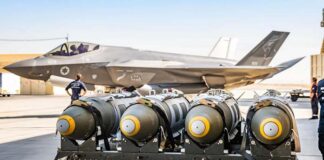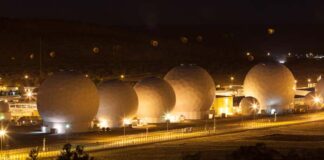Demonstrations have continued after President Park Geun-hye was removed from office in the middle of March.
The Constitutional Court ruled unanimously that Park should be ousted from her post because of “acts that violated the Constitution and laws”. She could now face charges of bribery, extortion and abuse of power.
People were greatly pleased by this achievement which they had accomplished with their own hands. Around 5000 people were watching a live broadcast of the ruling on a large screen just outside the court.
As soon as they heard the decision, they marched towards the nearby Presidential Residence, shouting “Now it’s time to arrest Park!”
The rail workers, whose strike was crucial for the movement in its early phase, have staged demonstration action at the central rail station against the government’s decision to discipline them and sack scores of militants. They were also watching the live news on the screen and they all burst into applause.
On the next day, Saturday, 650,000 people participated in the protest in Seoul, the capital city, which celebrated Park’s removal with fireworks. Similar actions took place in other cities.
In contrast the size of the demonstrations by Park’s supporters shrunk significantly.
The decision is wholly the result of mass pressure from demonstrations and strikes. These have caused splits at the top of society as well as strengthening the movement from below.
Protesters have taken to the streets 20 times to demand Park’s removal since October. Over 15 million people have participated.
Park has called her supporters onto the streets in recent weeks. Her lawyer said during a court hearing that “there will be blood on the road” if judges ratified the impeachment.
South Korea is a close ally of US imperialism and treats trade unionists and activists harshly. In October last year more than 20 trade union leaders and activists were in prison.
The government recently announced the sacking of 89 rail workers for participating in a two-month strike that powered the movement in its early phase.
But repression has not saved Park.
Park was suspended as president after a vote in parliament to impeach her last December. It followed revelations of her corruption and further exposures have weakened her position.
A presidential election will take place within two months. Most of the ruling class want to regain political stability by sacrificing Park.
Accordingly, the Constitutional Court in its sentencing accepted the least among the various charges against Park. It portrayed big businesses who had bribed Park, including Samsung and Hyundai, as victims of “coercion”.
The court also ruled that Park’s failure to rescue lives in the 2014 Sewol ferry disaster was not a reason to impeach her.
Continuing the fight
The mainstream press now argue that conflict should stop and that the country needs “national unity”.
But Park is insisting that she has done nothing wrong and says, “Time will reveal the real truth.” Most newspapers have commented that she is lying in an effort to rally her supporters.
More than four years ago, the ruling class was united in supporting Park. Now, the ruling class is divided about Park—although the faction supporting her now constitutes only a minority among them.
On the other hand, workers are excited about the prospect of changing the government in the upcoming election which is expected to take place in early May.
When Park was elected in 2012, many workers were frustrated and several activists even died by suicide.
The umbrella organisation that has been leading the movement, People’s Action, decided not to disperse until the election.
Until then, it will organise protests and continue to demand Park’s arrest, the prime minister’s resignation, and the cancellation of deploying components for the US Missile Defence system.
In setting such tasks, the organisation did not include the task of inspiring workers’ struggle, despite Workers Solidarity’s effort to have it included.
So it is important for the radical left to intervene to build workers’ and students’ struggle at workplaces, campuses and streets against their bosses. The left is arguing to fight to scrap labour “reforms”, demand better wages and conditions, oppose the US missile defence system and defend education—as well as demand political change.
Economic and geopolitical crises continue in South Korea.
Whoever wins the election will eventually attack the working class, and a significant contradiction will emerge in the midst of imperialist rivalry between US and China which will again lead to public anger.
By Workers Solidarity
Solidarity’s sister organisation in South Korea





